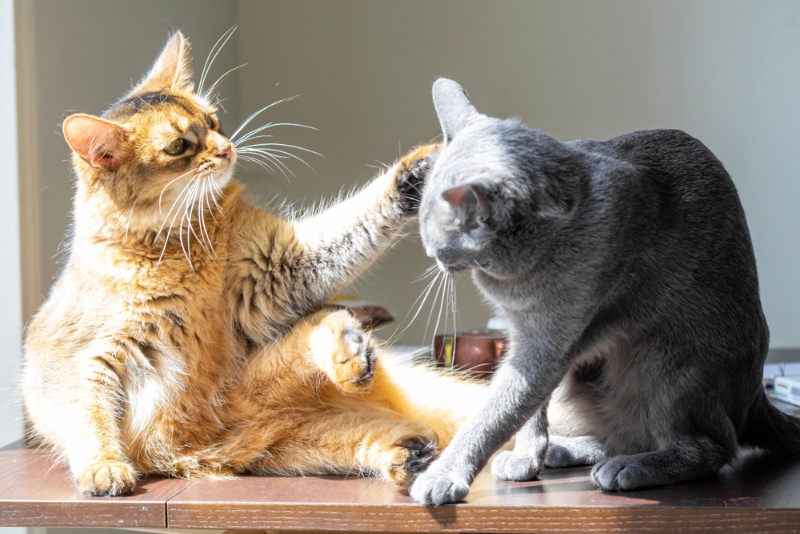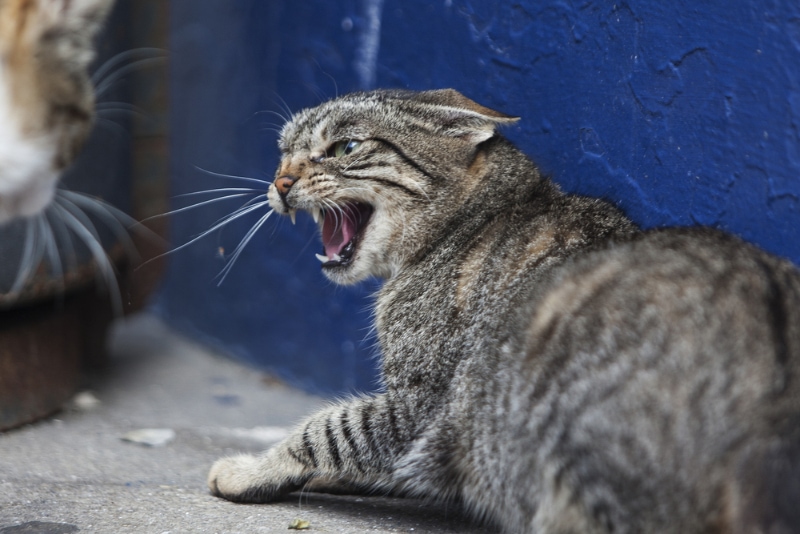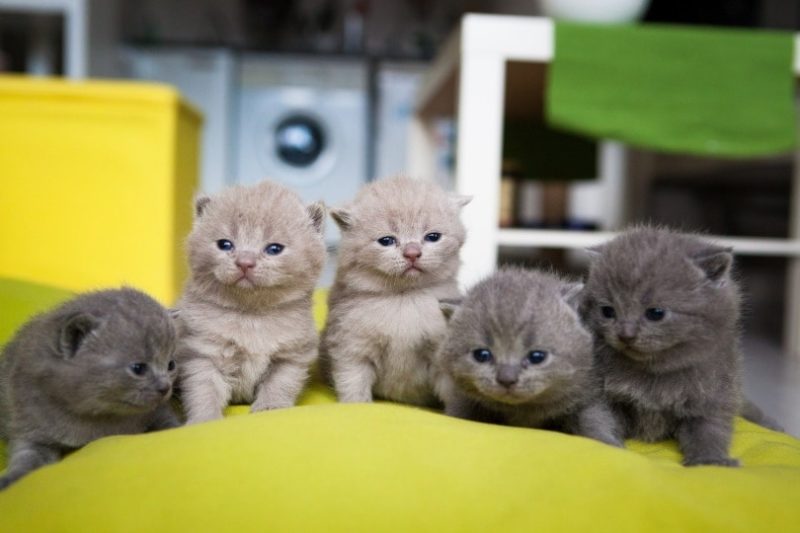Why Does My Cat Hate Other Cats? 6 Common Reasons
By Beth Crane
Updated on

If your cat seems to need lessons on etiquette with other cats they love, or you always find them in fights with others in the neighborhood, you might wonder why they seem to hate other cats so much! However, it may not be your cat causing the problem (or at least not all the time). In this article, we’ll look at six common reasons why your cat might avoid or fight with other cats, and what you can do to remedy the situation.
The 6 Reasons Your Cat May Hate Other Cats
1. They Aren’t Used to Them
One of the most common reasons your cat might seem to hate other cats is that they might not be used to them. Cats are a solitary species by nature, except in certain circumstances (such as breeding). If your cat isn’t used to socializing with other cats, meeting or living around them can cause stress.
Confrontations can occur due to your cat perceiving an unfamiliar cat as encroaching on territory or threatening them, and your cat might not be the best at communicating with others if they’ve not spent much time with other felines.

2. There Aren’t Enough Resources
Because cats are territorial, resources are essential to them. Food and water sources, favorite toys, scratching posts, and even sleeping places in the home can all be fiercely guarded by the cats who live there; this resource guarding can cause fights!
If yours is a multi-cat household, having the correct number of resources available for each cat can significantly reduce conflict and resource guarding. This can make life more pleasant for both you and your cats.
A general rule is to provide one resource (one food bowl, water bowl, etc.) per cat plus one. For example, if you have three cats, you’d need four water bowls and four food bowls.
3. There Isn’t Enough Space for Them
Like their need for resources, cats require their own space. Cats are territorial creatures, and outdoor felines have territories that span miles, which they roam and guard daily. Male cats have the biggest territories, which can be an area up to the size of 20 city blocks!
Males will also defend their territories against other males, whereas female cats are likelier to be tolerant and share. When your cat rubs their face on objects (or on you), they’re using scent glands in their chin and cheek to mark objects and places they own; this scent marking is how cats distinguish their territory from others.
Their territory translates to the home, with each cat typically having favored places they perceive as “theirs.” This can cause fighting and confrontations, especially if a part of their “territory” ends up in the middle of a hallway or right by a door.

4. They’re Not Neutered
One big reason why cats sometimes fight is because they haven’t been fixed. Male cats have large territories, as discussed in the previous point, and the territories are largest when the cats are unneutered.
Direct competition between males defending territory is amplified by male sex hormones, which also increases tension between male and female cats. The highest level of inter-cat aggression is seen in unneutered cats, so if your Tomcat constantly gets into scraps and isn’t neutered, his hormones could be to blame.
Fighting can also cause the spread of diseases such as Feline Immunodeficiency Virus (FIV) and often results in nasty cat bite abscesses that need veterinary attention.
5. They’re a New Mom
If your female cat has just had a litter of kittens and suddenly acts like she hates the other cats in your home, maternal instinct could be the culprit.
Maternal aggression is shown when mother cats (queens) feel they need to protect their young, so you might find your once friendly cat biting, swatting at, hissing at, and growling at cats she’s previously been very friendly with.
This behavior usually lasts until her kittens are weaned, so try to give her a safe space to rest with her litter to reduce stress.

6. They’re Just Not Sociable
Like any individual, your cat just might not be the sociable type! Sometimes, cats simply prefer to be on their own and can become nervous or stressed around other cats.
Unpleasant previous experiences with cats can affect how well your cat gets along with others. Environmental stressors such as thunderstorms or fireworks can also affect how your cat reacts to others in the home.
Do Cats Ever Get Along?
Cats can and often get along with others if they’ve been raised with them or are well-socialized. Socializing a kitten with friendly cats from a young age will teach them the appropriate feline body language and social cues, making future interactions with unfamiliar adult cats easier.
If you have a multi-cat household, ensure you have enough resources for each (one for each cat plus one) placed strategically to prevent resource guarding.
Alleviating stress in the home is also essential, and the use of artificial feline appeasement pheromones combined with areas of quiet and calm, vertical spaces and daily reassuring interaction with you can help your cats get along.

Conclusion
Not all cats will like other felines, and some hate them! Cats are not overtly social creatures by nature, but many do learn to live in multi-cat households and thrive. If your cat has fought with the other cats in the neighborhood, it can be distressing for you both.
There are things you can do to lessen inter-cat aggression and prevent fighting. However, if your cat exhibits any new or concerning behavior, they should be taken to your veterinarian for an assessment.
Featured Image Credit: Jacques Julien, Shutterstock










